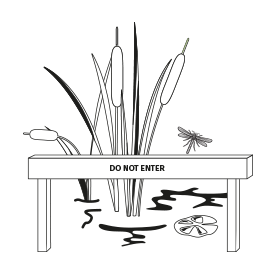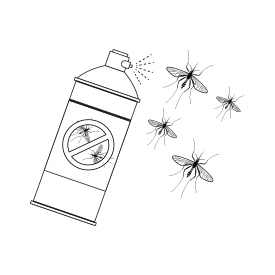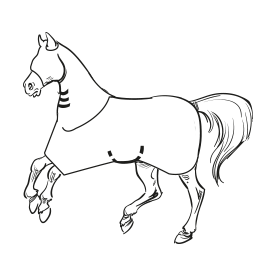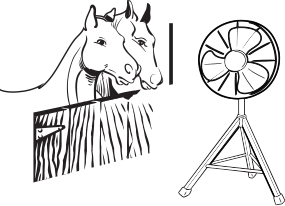What is
West Nile Virus?
WNV was first found in North America in 1999, and quickly spread across Canada and the United States.
Carried by wild birds and mosquitoes, WNV causes clinical disease more frequently in horses and humans than in other mammals. Although some horses may not show any signs of disease, WNV typically causes encephalomyelitis (inflammation of the brain and spinal cord), with associated neurological symptoms that range in severity.
How is West Nile Virus contracted?

WNV is most commonly transmitted via the bite of an infected mosquito or other bloodsucking insect that previously bit an infected bird. Contact with the tissues or blood of infected animals can also cause infection, but only in very rare cases.
Learn more about West Nile Virus in CanadaClinical signs and symptoms of equine West Nile Virus
The severity of symptoms in horses infected with WNV can vary. Clinical signs and symptoms of WNV in horses include:
Fever
Incoordination/ataxia
or the loss of control of body movements, particularly of the hind limbs
Reduced appetite
Muscle tremors
particularly affecting the face, neck, and/or shoulders
Depression
overall dullness
Signs of neurological disease
Head pressing, inability to stand, convulsions, and/or any other signs of neurological disease
Prevention and treatment of equine West Nile Virus
The severity and prognosis of WNV vary with the age of the horse, the part(s) of the central nervous system affected, and the extent of the damage. Older horses are less likely to have a positive outcome.
There is currently no antiviral drug available to kill the virus, nor is there a drug for the treatment of WNV encephalomyelitis.
Timing is critical:
non-steroidal anti-inflammatories should be administered as soon as possible following WNV infection to best control inflammation and manage pain.
Other common courses of action for infected horses include:
- IV fluids
- Nutritional support
- Sedatives
Prevention is key to avoiding WNV infection
Vaccinating horses against WNV is the most effective way to reduce the risk of WNV infection, and it is one of the AAEP guidelines core vaccines. West Nile Virus vaccination is recommended annually.
In addition to vaccination, a number of other measures can be taken to help minimize the risk of your horse being bitten by an infected mosquito, including:

Reducing or eliminating mosquito breeding sites, notably standing water

Using horse-safe insect repellent before riding or turning out your horse

Using a fly sheet on your horse during turnout

Keeping horses inside at dusk and dawn during mosquito season

Deterring mosquitoes from stalls with fans or screens
